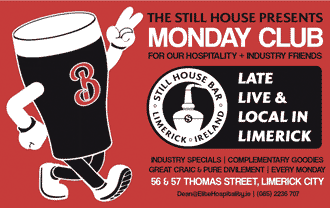

In line with a national increase in students seeking counselling, the number of UL students attending the service rose from 500 in 2006 to 830 in the 2012-2013 academic year.
Dr Declan Aherne told Limerick Post: “We have seen a steady increase in the last five years, which is exactly the same as what’s happening all over the country. The demand for mental health services in general is growing.
“Our services are bursting at the seams with waiting lists of up to three weeks or more. About eight to ten weeks into the term you’ll have a two to three-week waiting list and then you have to prioritise. At-risk cases will be seen immediately but others will be put on the waiting list. We have come up with some creative ways of dealing with that such as self-help techniques, online resources or group sessions.”
Dr Aherne said that the increase could be attributed to the changing profile of university students, and the growing pressure on already stretched mental health services.
“The university now has a far more complex profile of students. Whereas before it was mainly kids coming straight from school, now we’ve got access students and mature students and international students,” he explained.
“The main thing that students come to see us about is low mood – feeling down in the dumps. A lot of people think that most of the problems are due to college but that’s really only a minor issue. A lot of students are coming from very difficult backgrounds where they might have experienced trauma and that’s the main issue.”
The majority of students did not cite financial pressures as their main worry.
However, Dr Aherne believes that the current economic climate is in part indirectly responsible for the increase as “there is less in the resource tank now to support the more vulnerable people”.
Alongside Dr Aherne, the UL student counselling service is manned by the equivalent of two full-time staff.
They are also assisted by a number of interns and trainee and assistant psychologists who are supervised by qualified staff and attend to low-risk students.
A recent report from the Irish Association of University and College Counsellors (IAUCC) recently revealed that the number of students seeking help is up 33 per cent nationally, while staffing levels in college counselling services have fallen by over 25 per cent.


